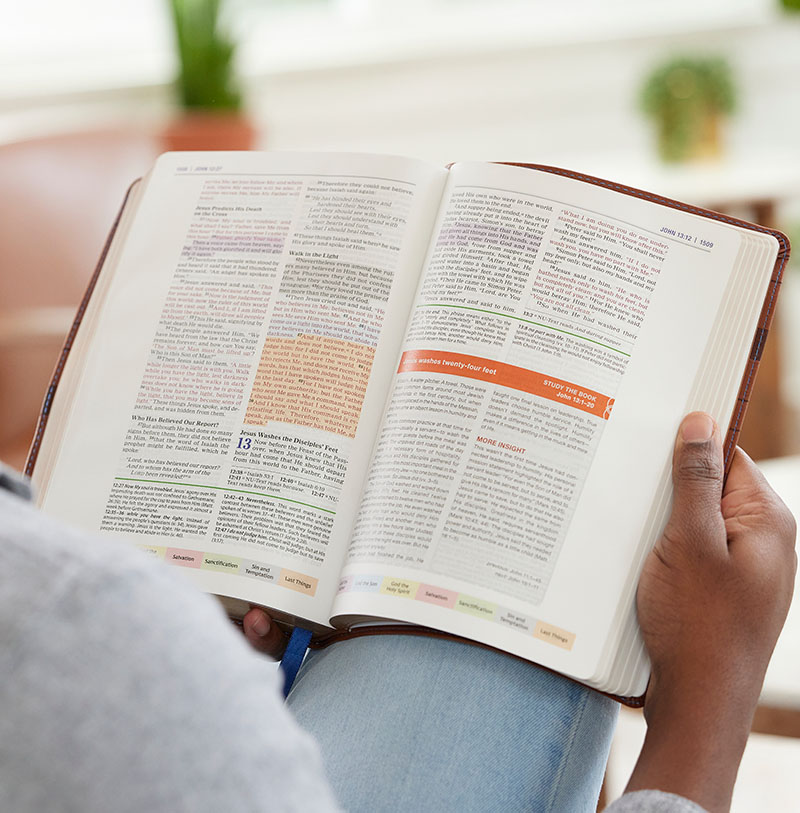Covenants form the backbone of much of the biblical story. God, the awesome Creator of the entire universe, freely chose to make everlasting promises to Abraham and his descendants. These promises in the Abrahamic covenant were the foundation for all of God’s subsequent promises and covenants in the Bible.
With Noah, in the midst of judgment, God stooped down to meet the needs of His servant and to enter into a binding oath with him.
Throughout the Bible, we see God promising Himself to His people. Here are some lessons about covenants and why they are so important in God’s Word.
Covenants Are God’s to Make
Covenants were common throughout the time of the patriarchs, set up as binding agreements between all types of people. Sometimes the covenant would have conditions, and sometimes covenants were just a generous promise. But any covenant was only as strong as the faithfulness of the people making them.
Enter God.
There never has been anyone more powerful and truly lovving. Even better, when He makes a covenant there is no wondering about whether or not He will fulfill His end of the bargain. His power backs up His love and faithfulness. And He uses His power for good.
God initiated covenants in the Old Testament with:
- Noah (Genesis 6:18, 9:9-17)
- Abraham (Genesis 15 and 17)
- Jacob (Genesis 28:15)
- Moses/Israel (Exodus 34:27)
- Descendants of Aaron (Numbers 25:10-13)
- David (2 Samuel 7:1-17)
When God makes a covenant, He has the authority to set the conditions, meaning the recipient of the covenant can put full confidence in it. His covenants reveal His will, His power, His mercy, and His love.
God’s Covenants Are Blessings That Call Forth Obedience
God Almighty, the Lord of Hosts, has the power to create and destroy. The wind and waves obey His command. The animals yield to his will. Planetary powers are under His authority. Even the heavenly armies bow to His omnipotence. When someone that powerful makes a covenant with us, He could make us obey. But instead He asks us.
Ultimately, obedience is not a payment for securing a covenant relationship with God; rather, it is the appropriately worshipful way of acknowledging the One who has the ultimate covenant authority. The words “obey” and “covenant” appear together in the same verse six times in the Old Testament. And for every leader, judge, prophet, and King who reminded God’s people of His covenant, the command to obey followed.
God would be faithful to His promises. He required His people to acknowledge His faithfulness and provided the power to back it up in their obedience.
God’s Covenants Are Forever
Some promises are made to be short-term. You promise to make the monthly payment until the debt is paid. You promise to work a certain job until the requirements are met. But then there are promises that have no time limit – forever promises. Anything God promises is a forever promise.
God’s promises last.
And though His people were given a forever covenant with the stipulation that they obey Him and fear Him as God Almighty, they wouldn’t do it. The people failed their end of the covenant in every way possible. Not only did they turn away from God but they turned to idolatry.
The people not only stopped obeying; they actively disobeyed. The prophets God sent were promptly ignored. Chance after chance after chance was given, only to be rejected. So discipline had to come. If God’s people wanted to play that game, they had to face the consequences of consistently living as though they did not belong to God. He removed His hand from the nation of Israel and they fell to their enemies.
Temporarily.
Because, you see, God had made a forever covenant, and He meant it. He did not go back on it. Though the people fell to their enemies, God sent prophets to them. Though they were captives, God sent a message of hope and freedom and forgiveness.
He reminded them that He had never forgotten His covenant.
God’s New Covenant
Each of God’s covenants could be boiled down like this: I will be yours, and you will be Mine. Pretty cut and dried, plain and simple. Well, in theory. But God’s people wouldn’t do it. They simply wouldn’t stay away from selfishness and rebellion, idolatry and sin.
This is where we see the real compassion and amazing mercy of God: he could have just walked away. He didn’t need them. He had given them enough chances. They hadn’t just taken a misstep; they had willfully bucked, willfully chosen disobedience. He could have chosen to be done with humanity altogether.
But He didn’t.
Instead, He enacted the next step in His plan: a new covenant.
Thoroughly built upon love, God’s new covenant would be unlike the others; instead of requiring His people to come up to His impossible standards, He would send someone who could. That someone was Himself.
Jesus is the New Covenant
Every covenant pointed to Jesus, and everything was fulfilled in Jesus. He gave us eternal life. He allows people to belong to God. He is the “yes” to all the promises of God.
The new covenant isn’t a document; it’s a Word. The Word that became flesh. No longer do we wonder if we’ve lived obediently enough to abide by the covenant; Jesus is the new covenant, and our lives are wrapped up in His. If He declares us righteous, we are righteous. If He declares us redeemed, we are redeemed. He is the mediator of the new covenant, and He alone declares us worthy of God.
And not only are we recipients of that new covenant, but we are also ministers of it. It’s our job to explain this new covenant to our friends, family, acquaintances, and neighbors. It’s our joy and privilege to acknowledge Him as our covenant.






